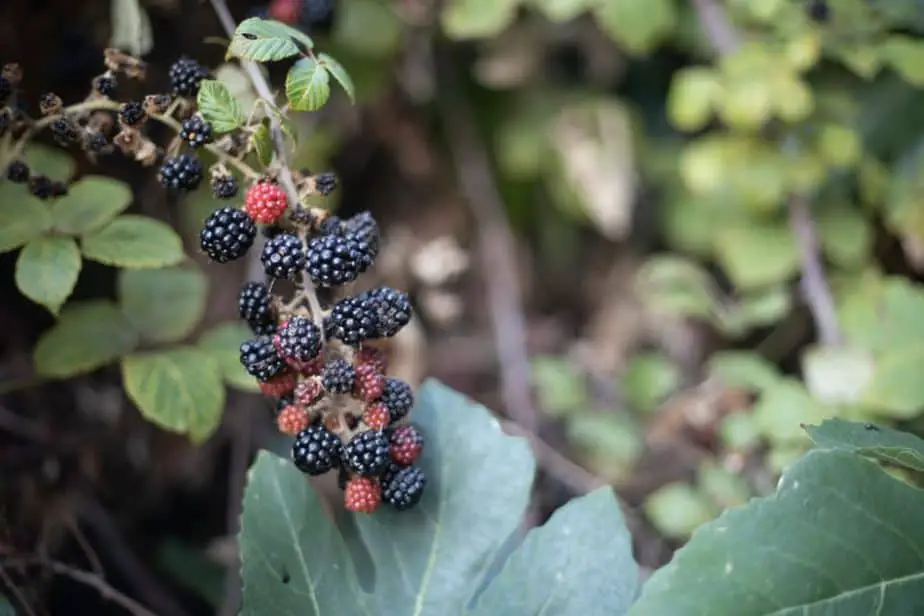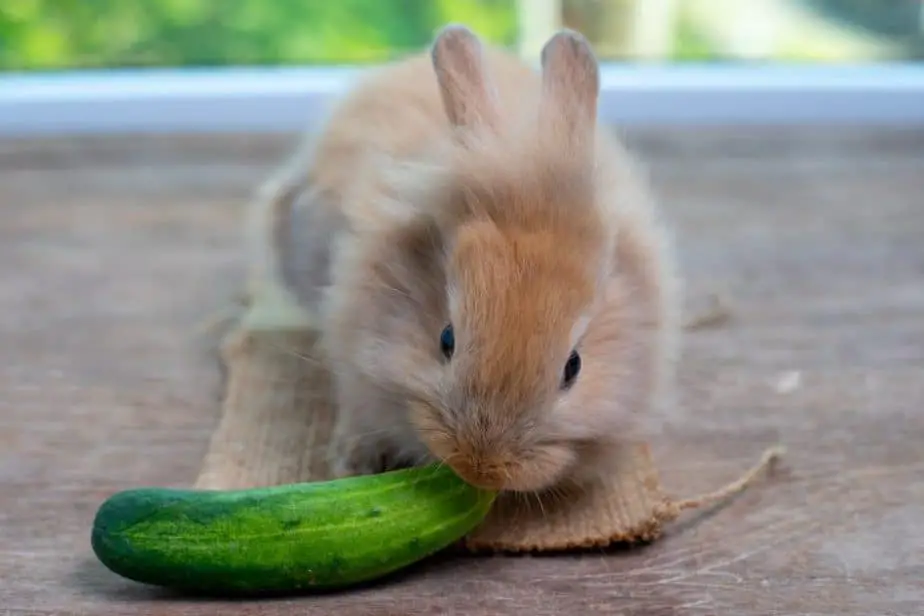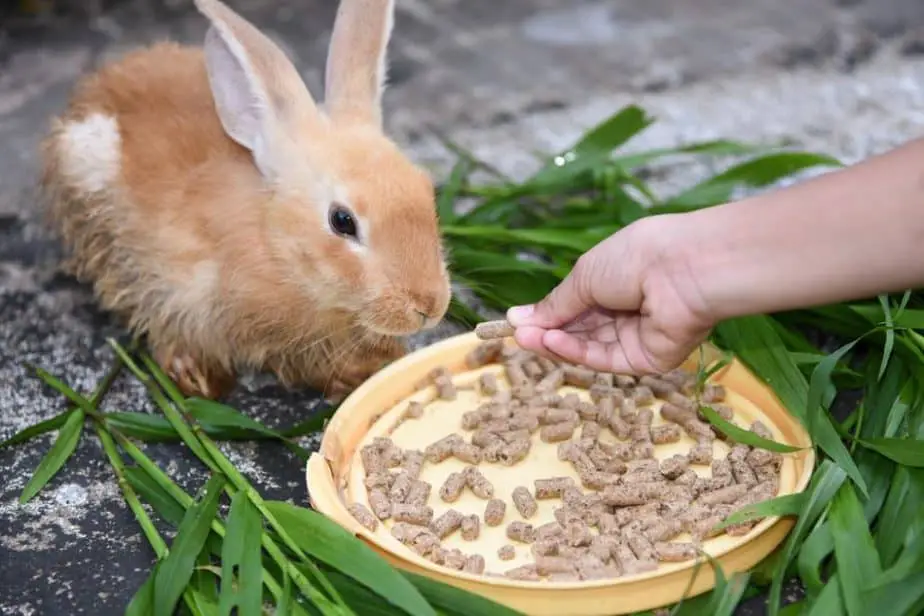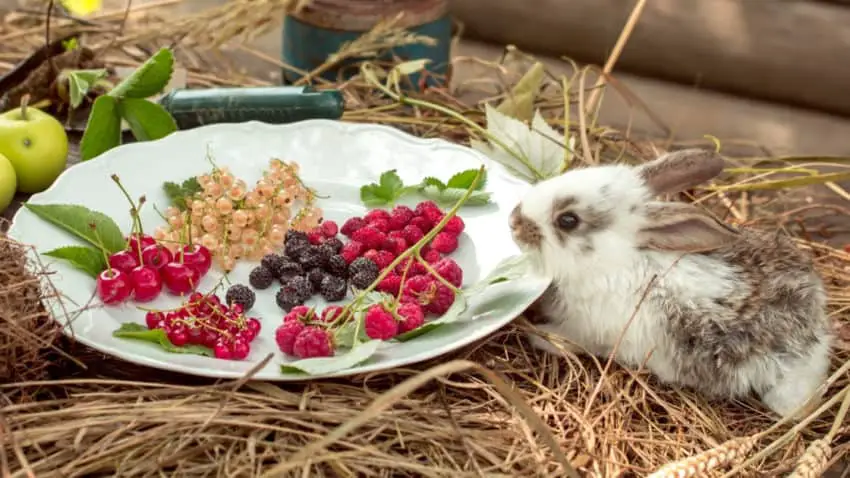On your quest to find wholesome fruit treats for your pet rabbit you may have wondered “Can rabbits eat blackberries?” And if you felt that it would be a good choice for your pet rabbit. You would be right! So the answer is yes, you certainly can feed your pet rabbit blackberries. Adding fruit to your pet rabbit’s diet is always an exciting affair. You see rabbits love their treats and they enjoy different flavors.
Blackberries are delicious and packed with nutrients. However, like most things you need to know how they can be used in a rabbit’s diet. For this reason we will look at blackberries in-depth so that you know everything there is to know about rabbits and their beloved blackberries.
Do rabbits like blackberries?
Yes, they certainly do! You may have noticed by now that your pet rabbit likes sugary fruit. They love the sweetness that blackberries offer. They are certainly high up on their list of treats, as a result it is your responsibility to control their blackberry consumption.
How many blackberries can I serve my pet rabbit?
As always when it comes to fruits and vegetables, and especially fruits with high sugar content, you have to be very conscious of portion size.
An adult rabbit can have 1 large blackberry or 2 small blackberries. You should not feed baby rabbits blackberries. Their digestive systems are too immature to deal with fruit.
Due to all this, you should also only offer your pet rabbit blackberries once or twice a week. If this week is “blackberry” week, you should only feed your rabbit blackberries. Do not offer other fruits as well. You may make your rabbit sick.
How should I introduce my pet rabbit blackberries?
If your pet rabbit is new to blackberries, you should only try her with half a serving. This can be done by starting your pet rabbit on one small blackberry and then monitoring to see if he or she has a tolerance for the fruit. If your rabbit develops diarrhea, it may mean that your pet rabbit should not have blackberries again.

What is the nutritional value of blackberries?
There is no doubt that blackberries are extremely nutritious and they are one of the best fruits that your pet rabbit can have. Blackberries are packed with vitamins and minerals. They are also rich in antioxidants which help fight disease in your pet rabbit’s body. When speaking about the nutritional value of blackberries, we usually use the cup measurement. Here we give you the nutritional facts for blackberries:
- Carbohydrates (7 grams) -While your pet rabbit does not need many carbohydrates in his diet, It does give him more energy for all his antics.
- Fiber (6 grams) – As you may already know 80% of a rabbit’s diet is fiber, so this is good for your rabbit.
- Protein (2 grams) – While rabbits should not consume too much, it is essential in building strong muscles.
- Fat (.7 grams) – Blackberries are low in fat which is a good thing since you should always be conscious of the fat and sugar content in foods. Rabbits can become obese if there are imbalances in their diet.
It’s no surprise that blackberries are chock full of vitamins and minerals. They pack quite the healthy pinch.
- Manganese (9 milligrams) – Manganese helps your et rabbit’s liver function properly and also helps with the processing of certain vitamins and minerals.
- Magnesium (8 milligrams) – This mineral helps regulate your pet rabbit’s muscle and nerve function.
- Choline (2 milligrams) – Helps protect your bunny’s liver.
- Vitamin B5 (.4 milligrams) – Helps turn food in energy for your pet rabbit.
- Copper (.2 milligrams) – Even though blackberries have very little copper, it still helps keep your bunny’s red blood cell count up. It is also essential for healthy bones.
- Phosphorus (7 milligrams) – Phosphorus is responsible for your pet rabbit’s strong bones and teeth.
- Calcium (8 milligrams) – Also good for the health of your bunny’s skeletal structure.
- Vitamin A (308 iu ) – This vitamin is essential for a healthy immune system and reproduction.
- Potassium (233 milligrams) – As you can tell blackberries have quite a bit of potassium. It regulates fluid in a rabbit’s body.
- Vitamin C (2 milligrams) – A rabbit does not need Vitamin C. Blackberries do not have a lot of Vitamin C. Too much Vitamin C in a bunny’s diet may cause kidney failure.
- Vitamin K (5 micrograms) – Even though, there is very little of this vitamin in blackberries. We will still mention its nutritional value. This vitamin is essential for bone health and healing.
- Folate (36 micrograms) – Again, there are only trace amounts in blackberries, but this mineral is more important for pregnant buns and fetal development.
What may happen if I feed my rabbit too many blackberries?
Well, too much of a good thing, can do harm. If you feed your pet rabbit too many blackberries, it will interfere with his digestive health. Bunnies have very sensitive digestive systems and the balance can be easily upset.
If you give your rabbit too many blackberries, he or she may get a bout of diarrhea and experience some stomach discomfort.
Can rabbits consume blackberry leaves safely?
The answer is yes. If you grow your own blackberries or you have a fresh supply of them, you can feed them to your pet rabbit.
You should always make sure that the leaves have not been sprayed by any pesticides and herbicides. Obviously, tainted leaves can make your pet rabbit fatally ill.
Are wild blackberries safe for rabbits?
Yes, they are. If you are wondering if wild bunnies will have too many wild blackberries. Remember, they are seasonal.
Are there different types of blackberries?
Yes, there are three types of blackberries. They are:
- Erect thorny blackberries
- Erect thornless blackberries
- Trailing thornless blackberries
Erect blackberries, as the name suggests are plants that grow vertically. Trailing blackberries must be trellised to support the blackberries.
What other fruits can a pet rabbit safely consume?
Although fruits are fed to rabbits more on a treat basis, they add delicious variety to their diet. Here is a list of other fruits that your rabbit may like as well:
- Grapes
- Papaya
- Peach
- Pear
- Melon
- Nectarine
- Orange
- Pineapple
- Plum
- Watermelon
You should also know that others in the berry family, have the green light. Your rabbit can also have:
- Blueberries
- Strawberries
- Raspberries
- Cranberries
What vegetables are safe for rabbits to eat?
As you know vegetables should also be a part of a rabbit’s diet. Here you can be a bit more liberal with some vegetables since they are lower in sugar content which means that rabbits can have a modest portion of certain vegetables every day. Here is a list of those vegetables that you can introduce into your rabbit’s diet:
- Radish sprout
- Clover sprout
- Watercress
- Wheatgrass
- Zucchini
- Romaine lettuce
- Green leaf lettuce
- Red leaf lettuce
- Boston Bibb lettuce
- Arugula lettuce
- Butter lettuce
- Okra leaves
- Radicchio
- Radish tops
- Alfalfa sprout Bell peppers
- Bok choy
- Brussels sprouts
- Carrot tops
- Cucumber
- Endive
- Escarole
- Fennel
- celery
- Yu Choy
- watercress

There are vegetables that you should be a little more cautious with. Here is a list of those:
- Clover
- Collard greens
- Kale
- Spinach
- Broccoli (leaves and stems)
- Carrots
- Chard
What should a rabbit’s diet look like?
So, we know that rabbits can have blackberries as a treat. However, we always like to remind pet owners what rabbits should eat to be strong and healthy.
Hay/grass
This is a non-negotiable diet item. Rabbits should always have hay in their hutch or cage. Hay takes care of your rabbit’s fiber requirements. 80% of a rabbit’s diet should be hay. It helps his digestive system function properly. It is also essential for a rabbit’s dental health. Rabbit’s teeth never stop growing so they need to always have hay to nibble to grind them down.
Fruit/Vegetables
These food groups provide the vitamins and nutrients that your pet rabbit needs. They are served in modest portions. You can sometimes mix vegetable peelings in with the hay to add a bit of flavor!
Pellets
This is optional. If you think that your pet rabbit is getting enough nutrients from the fruits and vegetables, you can forgo pellets. Pellets are made of hay with added nutrients. They make feedings very convenient. However, they should not be relied on heavily and they can never replace hay.

Water
Fresh clean water is important for your rabbit. If you have a bowl in your rabbit’s cage you should refresh at least twice a day. Sometimes rabbits sully their water as they move around their accommodations.
Fruits, vegetables, and pellets should make up the other 20% of your rabbit’s diet. You should really adhere to these ratios. Since if the delicate balance is upset, your rabbit can become ill.
So now you know that blackberries are an excellent fruit choice for your bunny. However, as with all new additions to your pet rabbit’s diet, blackberries should be introduced a little at a time. They can only have small amounts and a couple of times a week. Blackberries are a little fruit with a lot of nutritional value and your pet rabbit with absolutely love it!
Additionally, if you want to have a high level view of what a rabbit’s diet should look like, I would recommend heading to the article titled Are rabbits herbivores?.

